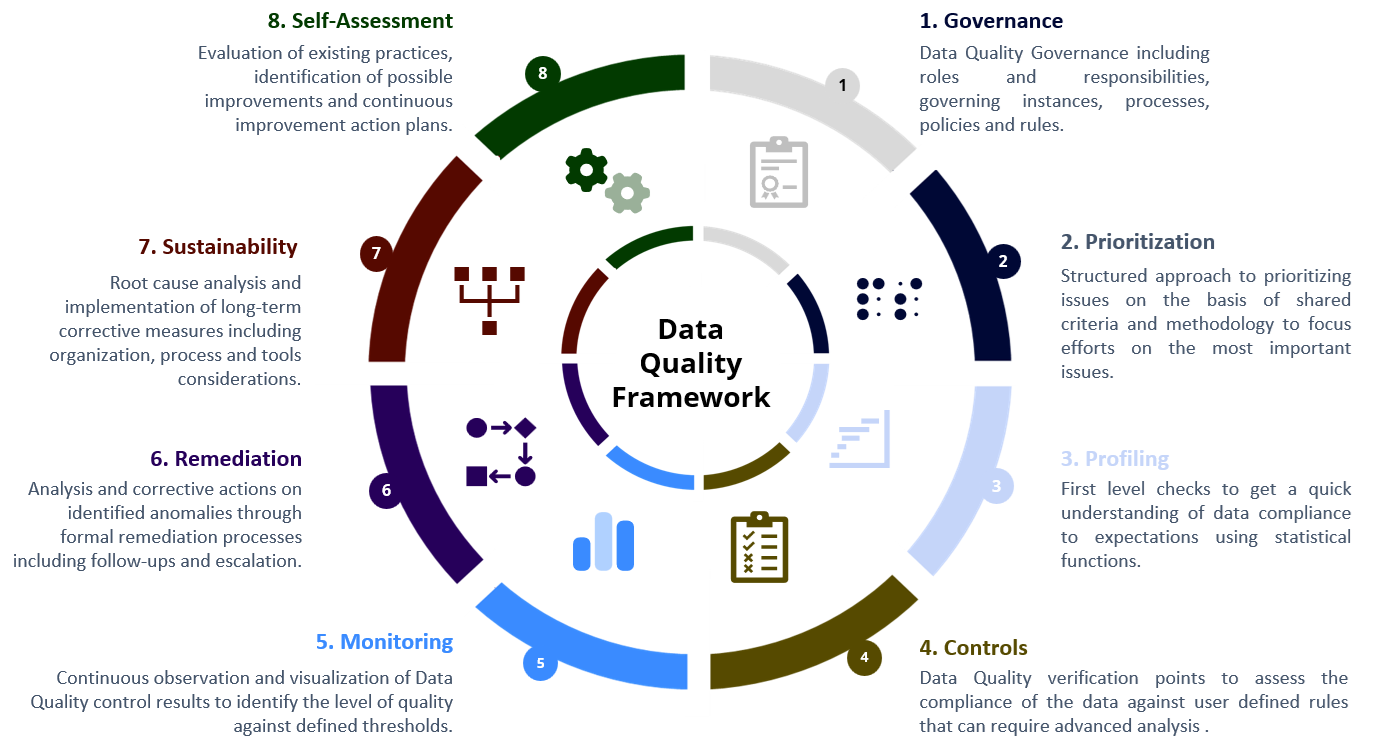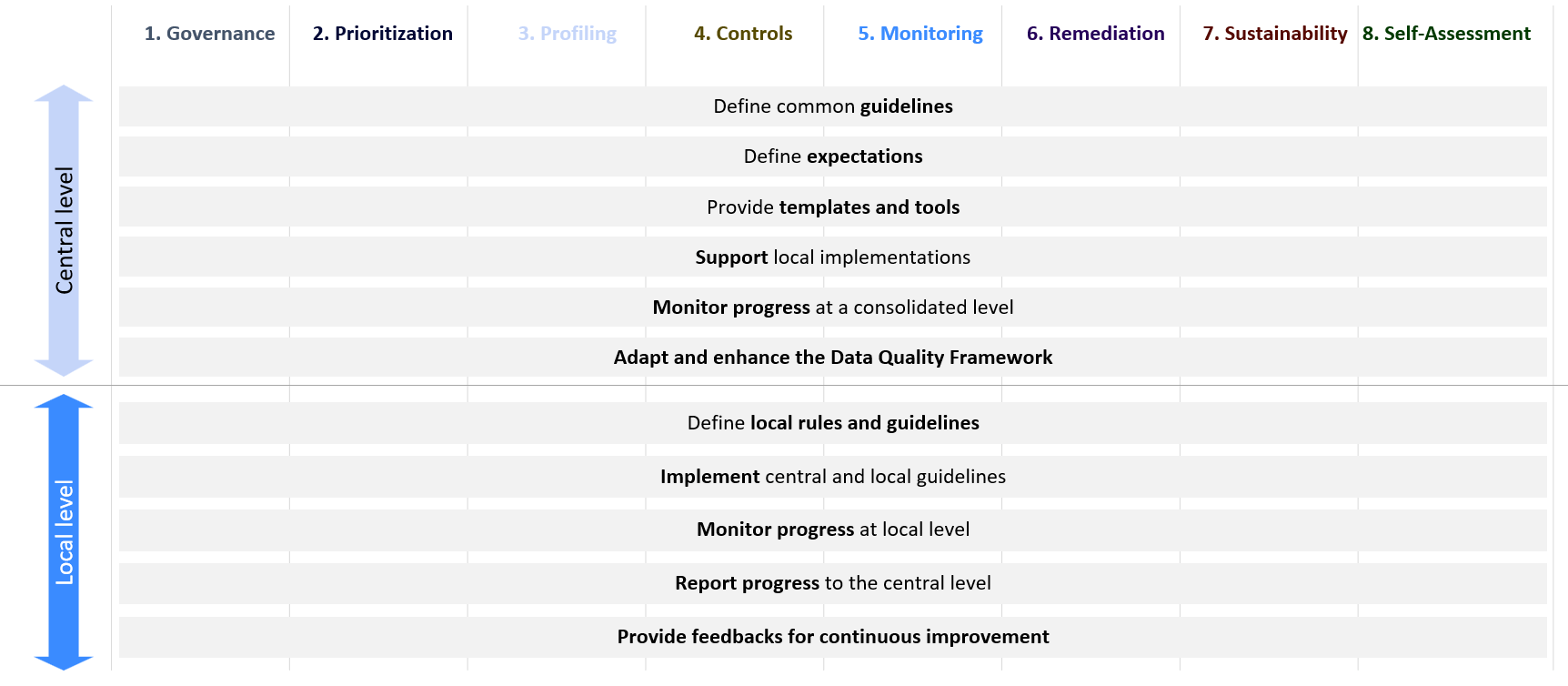Executive Summary
The Data Quality Framework plays a pivotal role in ensuring data quality, reliability, and integrity in the following context:
Data delivered by the enterprise is becoming more and more strategic to Customers: the enterprise customers are increasingly leveraging data to make internal decisions and provide better services to travelers.
Growing Asks from customers of quality level of Data provided by the enterprise: Customers request information to their data providers of the quality of data because they want to ensure that information, they rely on is accurate, reliable, tailored to their needs and pay a fair price for data services.
Increasing Regulatory requirements: Regulators request to meet regulatory and legal requirements related to data to avoid penalties and legal issues.
Scope
The scope of this Data Quality Framework encompasses the methodologies, standards, processes, tools, progress monitoring, and governance structures required to ensure high-quality data across the enterprise, from data collection to data analysis and reporting. Built around eight essential capabilities, this framework forms the foundation of the enterprise’ data quality practice, ensuring that data is accurate, reliable, and actionable.

Stakeholders impacted by the framework
The intended audience for the Data Quality Framework includes a wide range of stakeholders within the enterprise who are involved in or impacted by Data Quality Management. E.g., Governance, Advisory Board, the enterprise Data Office, Business Data Offices, Business Lines’s R&D Teams, Legal, CISO, etc.
Operating Model
The operating model for the definition and maintenance of the enterprise Data Quality Framework involves the Central Data Office and Business Line Data Offices and is consistent with the federated governance model. It can be illustrated with the following distributed approach between a central level with Central Data Office and local levels with BUSINESS LINE DATA OFFICEs:

As a central team, Central Data Office manages the definition of common standards and guidelines, provides templates and tools where necessary, supports local implementations and maintains an oversight on progress through monitoring and follow-ups. It falls upon the Business Line Data Offices within the Business Lines to implement these overarching guidelines, adapting them as needed to address specific demands, including business requirements and regulatory obligations within their respective Business areas.
Types of data and data sources covered by the framework
The Data Quality Framework applies to various categories of data including Customer facing data or Internal data And to several use cases including Enterprise Operation (Sales, Finance, etc.), Data Integration, Data Migration, MDM, Analytics, Data Science (Algorithm and Model Training), Data Warehouses and Data Lakes, Operational Databases.
Implementation approach
The upcoming phase of this project is planned to be completed, with the primary objectives being to
Streamline the existing framework into a unified framework that ensures standards across all business lines, while maintaining flexibility for each business line /DTS to incorporate its own specific policies.
Alignment of high-level data quality framework to implement, aiming to be practical and relevant.
Business & Technical stakeholders buy-in.
Equip users with the necessary knowledge & governance tool to adopt the unified framework.
Internal Pilots implementation
Establish a mechanism to monitor and measure the adoption of the unified framework by business lines & and other internal units.
Retrospective and iterative deployment of data quality services